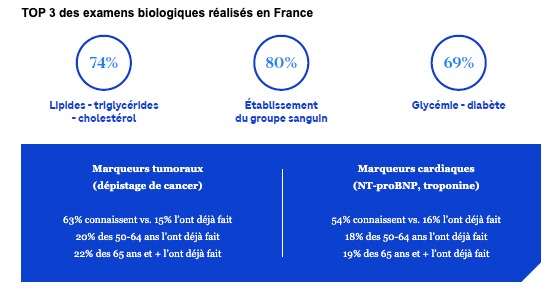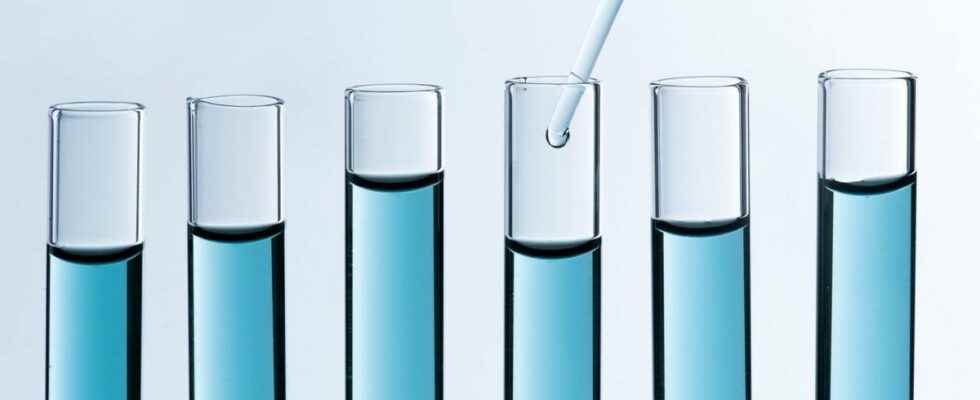Published 1 day ago,
Reading 3 mins.
A study conducted by the Opinion Way polling institute for Roche Diagnostics France laboratories shows that “more than 9 out of 10 French people feel the importance of health examinations and samples that can be taken to take care of their health. “.
It was a little known discipline until recently. Biological diagnosis was brought to light with the Covid-19 crisis, which allowed many French people to understand the mechanisms of certain screening carried out in the laboratory. According to an Opinion Way survey for Roche Diagnostics France, which appears today, “a third of French people say they have become aware of the role and importance of biological diagnosis since the Covid-19 crisis..
Integrate “prevention as routine”
Also according to the results of this survey, “84% of French people say they are interested in knowing whether or not they are at risk of developing certain pathologies, such as cancer (52%) or cardiovascular disease (25%)”which, it should be remembered, are the two leading causes of death in France.
Current medicine, which tends to want to develop prevention, is moving in the same direction. For Michel Guyon, Marketing Director at Roche Diagnostics France, “the French today have generally understood the crucial role that diagnosis plays in their care pathway and the Covid-19 pandemic has undeniably accelerated this awareness..
Be careful not to over-screen
When it comes to health, screening is always to be taken with a grain of salt and to be effective, it must be targeted. The study shows that “84% of respondents say they are interested in knowing whether or not they are at risk of developing a particular pathology”. The Covid-19 pandemic has given the impression that massive screening of the population could be carried out. He also showed his limits. And in normal times, it is neither essential nor desirable to massively screen the population, whatever the pathology.

An observation shared by Nadia Auzanneau, Deputy Managing Director at Opinion Way, in charge of health, nutrition and well-being themes, which agrees that “don’t let it become anxiety-inducing”.
For Michel Guyon, “it is essential to continue to teach about the different pathologies, their characteristics, the risks and associated diagnostic solutions to integrate prevention into the health routine of the French” .
According to him, “it is necessary to screen wisely according to certain criteria linked to risk factors but also according to physiological factors including age and sex. A few well-targeted biological tests – during an annual check-up from the age of 50, for example – can help detect patients who develop a chronic disease such as diabetes, heart failure or cancer.“.
Make young people more aware of the various screenings
Finally, one of the last points raised by this study relates to young people. The survey shows that more than half of those over 18 have never been screened for pathologies such as HIV or hepatitis C. This demonstrates that there is still a need to improve awareness of screening methods available this type of pathologies.
According to Nadia Auzanneau, “the attending physician remains the number 1 interlocutor, associated with prevention that would go through social networks, very used by the youngest”.
For the marketing director of Roche Diagnostics France, Michel Guyon, “we must multiply the channels of communication with young people to reach them more and raise their awareness” but “however, the gateway for any health user remains the general practitioner”whose role iscentral in the information that he will convey to his patients and will establish a relationship of trust with them”.
According to Michel Guyon, “this is why he must himself be informed in advance of the value that biological diagnosis can bring him and not hesitate to discuss with the medical biologist to interpret a biological result and strengthen the dialogue with him and the patient”.
